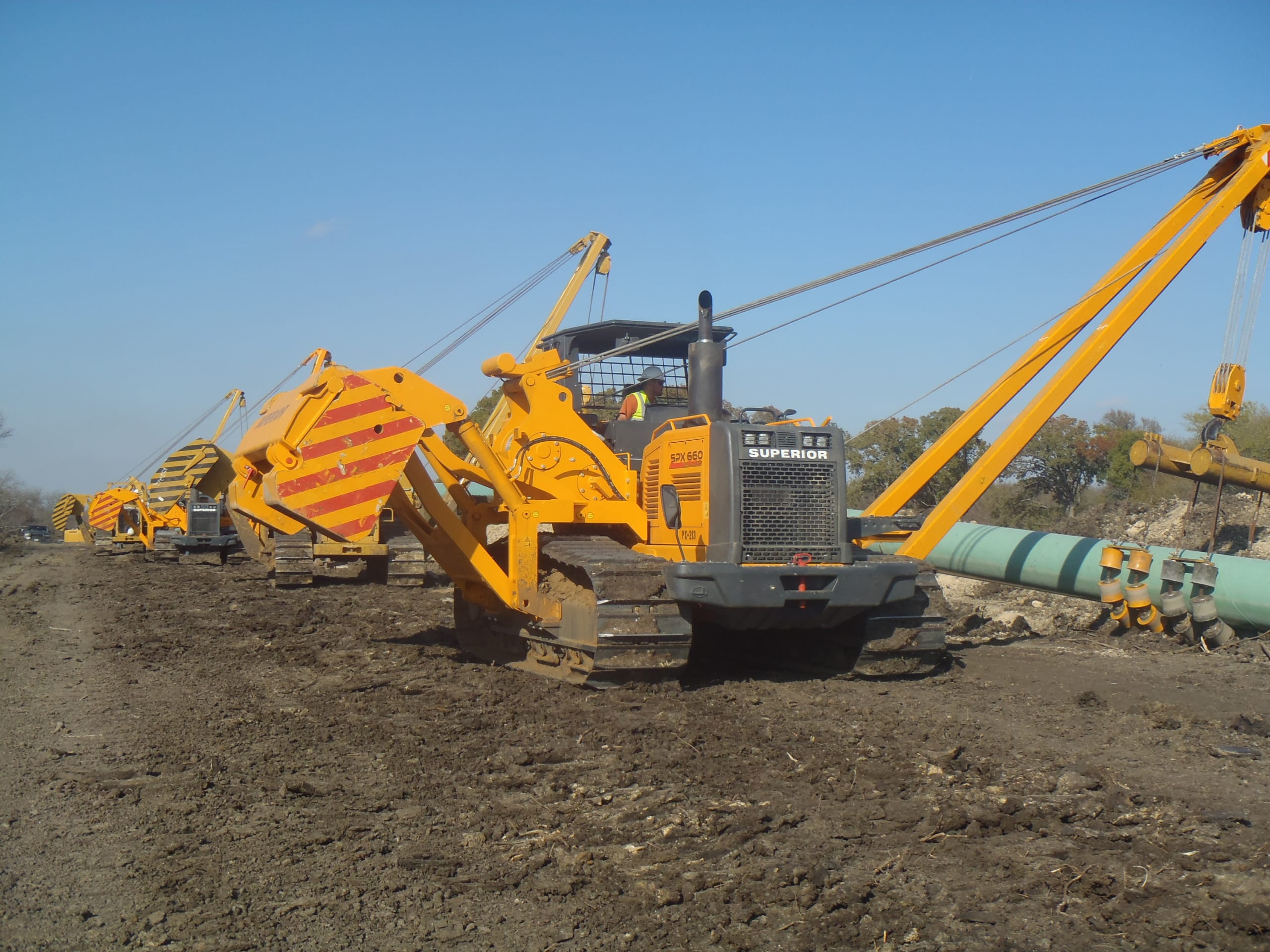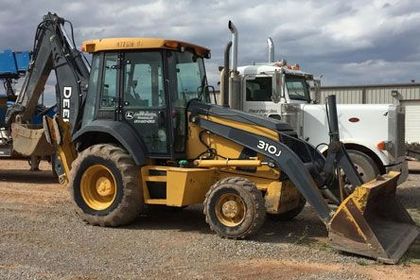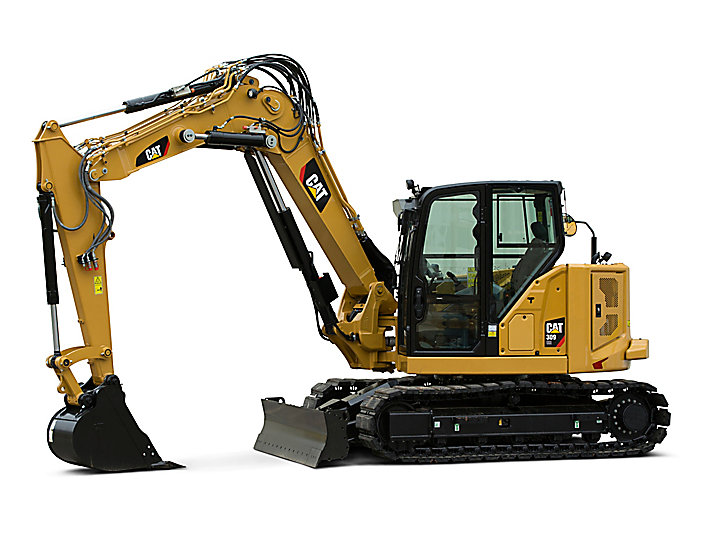Superior Oilfield pipeline equipment rentals: examples from the field
Wiki Article
A Comprehensive Guide to the Various Sorts Of Oil Field Equipment and Pipeline Equipment Available
The oil and gas sector depends greatly on specific equipment for effective removal and transportation. Various sorts of equipment, from piercing rigs to storage space tanks, play vital functions in this complicated process. Each tool offers distinctive functions that add to overall operational success. Comprehending these components is essential for any person included in the sector. As the sector advances, so as well do the modern technologies that sustain it. What innovations are on the perspective?
Drilling Rigs: The Backbone of Oil Exploration
Drilling rigs work as the necessary equipment in the domain of oil exploration, allowing companies to accessibility hydrocarbon reserves hidden deep beneath the Planet's surface area. These rigs are available in different kinds, consisting of land rigs, offshore rigs, and mobile devices, each developed to operate in details settings. Outfitted with innovative innovation, drilling rigs can permeate geological formations with precision, guaranteeing efficient source removal. The structural stability and operational capabilities of these rigs are crucial, as they need to stand up to severe conditions and substantial pressures. Furthermore, the selection of an exploration rig affects the general task price and timeline, making it a crucial consideration for oil business seeking to maximize their exploration efforts and make best use of productivity in their operations.Pumps: Necessary for Liquid Activity
In the oil extraction process, the duty of pumps is considerable, assisting in the activity of liquids throughout different stages of manufacturing. Pumps are crucial for transporting unrefined oil, water, and other liquids from underground reservoirs to the surface and afterwards via pipes to refineries. They can be found in different kinds, consisting of centrifugal, positive displacement, and completely submersible pumps, each offering specific objectives based upon the fluid attributes and operational demands. Centrifugal pumps are generally made use of for their effectiveness in high-flow applications, while positive variation pumps master managing thick liquids. The selection of pump effects general performance, functional safety and security, and maintenance costs. Correct option and upkeep of pumps are important for optimizing production and decreasing downtime in oil field operations.Valves: Controlling Flow and Pressure

Shutoffs play an essential duty in managing the flow and stress of liquids within oil fields and pipelines. Numerous kinds of valves serve unique applications, each created to accomplish particular functions basic for reliable operation - Superior Oilfield Rentals Texas. Comprehending the features and uses these valves is necessary for optimizing system efficiency and security
Types of Valves
Essential elements in oil area procedures, valves play a vital function in managing the flow and pressure of fluids within pipelines and devices. Numerous sorts of valves are made use of to fulfill the diverse demands of oil and gas manufacturing. Typical kinds consist of gate shutoffs, which give a straight-line flow and marginal pressure decline; globe shutoffs, known for their throttling capacities; and round valves, acknowledged for their quick on/off control. Furthermore, check shutoffs protect against heartburn, while butterfly shutoffs use a light-weight remedy for controling circulation. Each valve kind is developed with particular materials and configurations to stand up to the rough conditions frequently discovered in oil fields, making certain reliability and efficiency in procedures. Comprehending these kinds is crucial for reliable system monitoring.Valve Applications and Features
While different kinds of valves offer unique functions, their key applications revolve around managing circulation and stress within oil and gas systems. Shutoffs such as gateway, globe, and round shutoffs regulate liquid activity, ensuring peak efficiency and security. Gate shutoffs are typically utilized for on/off control, offering very little flow resistance. Globe shutoffs, on the various other hand, offer accurate circulation regulation, making them appropriate for strangling applications. Sphere valves are favored for their fast procedure and tight securing capacities. Additionally, pressure alleviation valves are vital for avoiding system overpressure, guarding equipment integrity. Overall, the appropriate option and application of valves boost functional performance, making sure the reputable transport of oil and gas via pipelines and handling centers.Compressors: Enhancing Gas Transport
Compressors play a crucial role in the efficient transportation of gas, guaranteeing that it moves smoothly via pipelines over lengthy ranges. These tools increase the pressure of gas, enabling it to overcome rubbing and altitude changes within the pipeline system. Furthermore, compressors help with the harmonizing of supply and need, suiting changes in intake and manufacturing rates. Different sorts of compressors are used in the sector, consisting of centrifugal, reciprocating, and rotary screw compressors, each offering unique benefits based on the functional requirements. Routine maintenance of these compressors is necessary to make the most of performance and decrease downtime, eventually contributing to a reputable gas transport network. Their essential function highlights the relevance of compressors in the total oil and gas facilities.Storage Tanks: Safe and Reliable Fluid Monitoring
Reliable transportation of gas depends on numerous supporting systems, one of which is the proper administration of tank. These storage tanks play a crucial duty in safely having liquids, making certain that functional efficiency is preserved while minimizing environmental dangers. Built from durable products, they are developed to withstand high stress and corrosive elements. Properly sized and tactically situated, storage containers help with the smooth circulation of gas and various other fluids, stopping traffic jams in supply website chains. Regular maintenance and surveillance are important to detect leakages or architectural problems, promoting safety and conformity with regulative requirements. Ultimately, the effective management of tank is vital for the total integrity and reliability of the oil and gas industry's liquid handling systems.
Pipeline Solutions: Infrastructure for Transportation
Pipeline systems function as the foundation of the oil and gas market, facilitating the efficient transportation of hydrocarbons over vast distances. These systems include different components, consisting of pipelines, valves, pumps, and compressors, all diligently created to assure smooth circulation. The products used in pipeline building and construction, often steel or high-density polyethylene, are chosen for resilience and resistance to rust. Pipeline networks can cover throughout land and water, linking production sites to refineries and distribution. In addition, advanced modern technology makes it possible for real-time tracking of flow prices and stress degrees, enhancing functional effectiveness. The strategic placement of these pipelines reduces ecological influence while making the most of resource availability, thereby playing an important function in conference power needs around the world.Safety Equipment: Guaranteeing Worker and Environmental Management
The procedure of pipeline systems, while important for power transportation, additionally presents significant security challenges for workers and the atmosphere. Safety and security devices plays a significant duty in mitigating these threats. Personal protective equipment (PPE) such as helmets, gloves, and non-slip shoes safeguards workers from physical hazards. Furthermore, gas discovery systems monitor for leakages, making certain that harmful substances do not position a threat to employees or the bordering environment. Emergency situation closure systems are critical for swiftly halting procedures throughout a situation, protecting against potential disasters. Spill control products, consisting of absorbents and barriers, are basic for decreasing environmental influence. Overall, purchasing all-inclusive safety and security equipment is vital for preserving functional integrity and safeguarding both workers and the environment in the oil and gas market.
Regularly Asked Questions
Exactly how Do I Select the Right Oil Field Equipment for My Task?
Choosing the best oil area devices involves evaluating project specs, budget restraints, and functional demands. Consider factors such as equipment dependability, compatibility with existing systems, and the provider's credibility to assure peak performance and safety and security.What Are the Maintenance Needs for Oil Field Equipment?
Upkeep needs for oil area equipment consist of normal assessments, lubrication, and prompt repair work. Operators needs to also follow supplier guidelines, screen performance metrics, and assurance compliance with security laws to enhance durability and efficiency.
Exactly How Can I Guarantee Conformity With Environmental Laws?
To ensure conformity with ecological policies, companies need to carry out normal audits, implement ideal techniques, purchase training, maintain proper paperwork, and remain updated on regulation (Superior Oilfield Rentals oilfield). Cooperation with environmental companies can likewise improve adherence to regulationsWhat Is the Typical Life-span of Pipeline Equipment?
The typical life expectancy of pipeline equipment usually varies from 20 to half a century, depending upon elements such as worldly high quality, environmental problems, and upkeep practices. Regular examinations can considerably influence longevity and functional effectiveness.How Do I Securely Carry Oil Field Equipment to Remote Locations?
Transferring oil field devices to remote places needs cautious planning, including route assessment, securing licenses, using appropriate vehicles, and making certain safety protocols are followed. Appropriate training and interaction amongst crews are crucial for effective transport.Report this wiki page